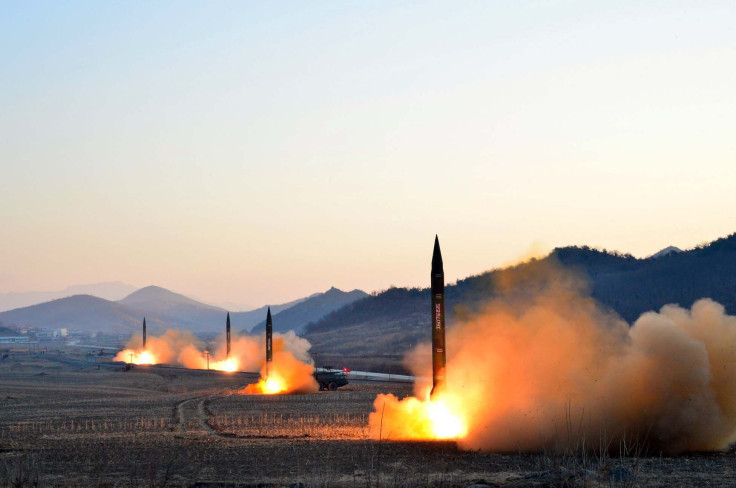North Korea Could Be Producing 'Devil's Venom' Rocket Fuel, Experts Say

A new analysis from U.S. experts warns that North Korea could be producing its own highly potent rocket fuel, further insulating its missile program from foreign influence. The website 38 North, run out the U.S. Korea Institute at Johns Hopkins University, published the analysis Wednesday.
The fuel, nicknamed “Devil’s Venom,” is unsymmetrical di-methyl-hydrazine (UDMH). In the past, North Korea has imported the highly volatile fuel from Russia and China, but domestic production of the fuel would mean that the impact of international sanctions could be severely limited in hurting the country’s missile program.
UDMH is critical to North Korea’s long-range missiles, like the Hwasong-14 intercontinental ballistic missile (ICBM). North Korea has tested two of the missiles this year and they have a theoretical range that includes the continental U.S.
38 North’s publication included research from Jeffrey Lewis, the director of the East Asia Non-proliferation programme at the Middlebury Institute of International Studies in California. Lewis used three North Korean scientific papers to draw conclusions about the country’s ability to create UDMH.
“North Korea is hardly so backwards that UDMH production would come as a surprise,” Lewis wrote in September. “Over the years, a variety of liquid and solid rocket propellants have been found in seized cargoes from North Korea.”
President Donald Trump has seemingly focused on more traditional fuel types such as gas and diesel, tweeting about long gas lines in North Korea after United Nations sanctions in September curtailed traditional fuel from going into North Korea.
Others fear that focus is in the wrong place.
“If North Korea does not have UDMH, it cannot threaten the United States, it’s as simple as that,” said Sen. Edward J. Markey, who sits on the Senate Foreign Relations Committee to the New York Times last month. “These are the issues that the U.S. intelligence community has to answer: from which countries they receive the fuel — it’s probably China — and whether North Korea has a stockpile and how big it is.”
If North Korea is able to produce the fuel itself, it might be too late for further sanctions to have an effect on diminishing the missile program, regardless of where the focus is.
“Nothing about their missile testing patterns suggests they’re vulnerable to supply shocks from an overseas supplier, be it China or Russia, cutting them off. All signs point to a domestic propellant and oxidizer manufacturing base that’s sufficient to fuel its own missiles,” said Ankit Panda, an Asia analyst and senior editor at The Diplomat, to the Telegraph Thursday.
Vipin Narang, an MIT professor and expert on nuclear proliferation, expressed similar conclusions to the Telegraph.
“Even targeted sanctions are unlikely to really slow down the missile and nuclear program, since the last dollar will go to these indigenous programs and the regime,” he said.
© Copyright IBTimes 2024. All rights reserved.




















